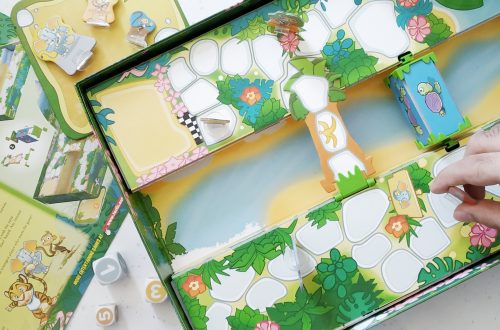
Effective Problem Solving Techniques for Parents to Foster in Their Children
Navigating life’s challenges can be tough, but strong problem-solving skills can make all the difference. As a parent, you have the unique opportunity to guide your child in developing these essential abilities. Problem solving isn’t just about academics; it’s about fostering critical thinking, creativity, adaptability, and resilience. Let’s explore some friendly and engaging problem solving techniques that will empower your child to tackle challenges head-on!
1. Nurture Curiosity
Curiosity is the spark that ignites problem-solving skills. Encourage your child to ask questions and explore new ideas. When they face a problem, motivate them to investigate and find solutions independently in order to improve their problem-solving capabilities and boost their confidence. Furthermore, consider early computer exposure to enhance cognitive development, as suggested by this independent school in Devon. Interactive learning boosts problem-solving, critical thinking, and decision-making skills, while educational software helps children navigate digital interfaces, fostering creativity and mental agility for academic success.
2. Promote Critical Thinking
Critical thinking is a cornerstone of effective problem solving. Engage your child in discussions about current events, books, or movies. Use open-ended questions to challenge their thinking. For instance, ask, “What do you think would happen if the character chose a different path?” This encourages them to analyse situations and think critically.
3. Cultivate a Growth Mindset
Instilling a growth mindset in your child is crucial. Teach them that intelligence and abilities can be developed through effort and learning. This mindset fosters resilience when faced with challenges, making them more adept at problem-solving.
4. Use Puzzles and Brain Teasers
Puzzles and brain teasers are fantastic tools for sharpening problem-solving skills. Engage your child with crossword puzzles, Sudoku, or jigsaw puzzles. Tackle these challenges together, emphasising the importance of approaching problems step by step.
5. Encourage Independent Decision-Making
Allowing your child to make age appropriate decisions—even if they make mistakes—is vital for their growth. This fosters independence and teaches responsibility for their choices. Remember, every mistake is a stepping stone to better problem-solving abilities!
6. Incorporate Creative Play
Creative play is a wonderful way to stimulate imaginative problem-solving. Activities like building with blocks, drawing, or crafting encourage children to plan, experiment, and adapt their strategies as they create. This kind of play is not only fun but also educational!
7. Read and Discuss Stories
Books that feature problem-solving characters can be both entertaining and enlightening. After reading, discuss how the characters overcame obstacles. Ask your child how they might have handled the situation differently, fostering empathy and critical thinking.
8. Teach Structured Problem-Solving Steps
Introduce your child to structured problem-solving techniques. Help them identify the problem, brainstorm solutions, evaluate options, make a plan, and implement it. Remind them that revisiting and revising the plan is perfectly okay!
9. Model Problem Solving
Children learn by example. Share your own problem-solving experiences with your child. Talk through your thought processes and decision-making strategies to demonstrate that problem-solving is a skill that can be honed over time.
10. Celebrate Mistakes as Learning Opportunities
Encourage your child to view mistakes as valuable learning experiences. Discuss setbacks openly, highlighting what they’ve learned and how they can apply that knowledge in the future. This reinforces resilience and adaptability.
11. Engage in Real-Life Problem Solving
Involve your child in everyday decision-making and problem-solving tasks, like planning meals or organising a family outing. This provides practical experience and boosts their confidence in their abilities.
12. Create a Supportive Environment
Lastly, ensure your home is a safe space for discussing challenges. Be patient and supportive as your child navigates their problems independently. Your encouragement will empower them to tackle challenges with confidence.
The Bottom Line
Developing problem-solving skills is a journey, and your guidance is invaluable. By employing these engaging problem solving techniques, you’ll equip your child with the tools they need to face life’s challenges with creativity and confidence. These skills will not only aid them academically but also prepare them for a successful future. Remember, it’s about empowering them to solve problems themselves, making them resilient and resourceful individuals!
Until next time.




